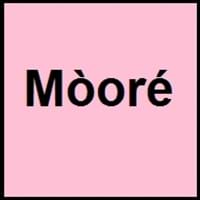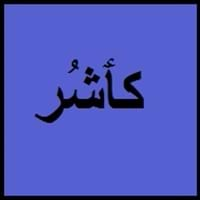Countries
Burkina Faso
India, Pakistan
National Language
Benin, Burkina Faso, Ghana, Ivory coast, Mali, Togo
India, Pakistan
Second Language
Not spoken in any of the countries
Not spoken in any of the countries
Speaking Continents
Asia
Asia
Minority Language
Not spoken in any of the countries
Not spoken in any of the countries
Regulated By
Not Available
Not Available
Interesting Facts
- Mossi languages use pitch to distinguish meanings.
- Mossi is the 2nd largest ethnic group in Ivory Coast.
- Kashmiri is the only Daridc language with literature which was originated more than seven hundred and fifty years ago.
- Kashmiri has thousands of loan words from Persian and Arabic Languages.
Similar To
Dagbani Language
Hindi and Urdu Languages
Derived From
Not Available
Sanskrit Language
Alphabets in
Mossi-Alphabets.jpg#200
Kashmiri-Alphabets.jpg#200
Scripts
Latin
Arabic, Perso-Arabic script
Writing Direction
Not Available
Right-To-Left, Horizontal
Hello
Kia ora
Assalām ‘alaikum
Thank You
Laafi bala
शुकिया / شکریہ (shukriya)
How Are You?
Laafi beme ?
तोहय छिवा वारय? (tohy ch'ivaa vaarai?)
Good Night
Ne y yungo
शबे खैर । (shabey k'eūr)
Good Evening
ne y zabre
Not Available
Good Afternoon
Kia ora
Hach t'ochoktiya
Good Morning
Ne y yibeogo
Hach ch'i
Please
gafare
Not Available
Sorry
gafare
माफ कॅरिव । (maap' keuriv)
Bye
Wend na kon-d nindaare
Khuda hāfiz
I Love You
Kei te aroha au ki a koe
be chus che seth mohabat karaan
Excuse Me
Y gafare
वय त्रॅाविव । (vat' treūviv)
Dialect 1
Ouapadoupou
Kashtawari
Where They Speak
Burkina Faso
India, Koshtawar valley, southeast kashmir, India
Where They Speak
Burkina Faso
Pogul and Paristan valleys
Dialect 3
Taolende
Rambani
Where They Speak
Burkina Faso
India
Speaking Population
Not Available
Native Name
Mosse
कॉशुर / كٲشُر
Alternative Names
Not Available
Cashmeeree, Cashmiri, Kacmiri, Kaschemiri, Keshur, Koshur
French Name
moré
kashmiri
German Name
Mossi-Sprache
Kaschmiri
Pronunciation
Not Available
[kəːʃur]
Ethnicity
Mossi
Kashmiris or koshur
Origin
Not available
12th Century
Language Family
Niger-Congo Family
Indo-European Family
Subgroup
Western Sudanic
Indo-Iranian
Branch
Gur (Voltaic)
Indic
Early Forms
No early forms
No early forms
Standard Forms
Mossi
Kashmiri
Signed Forms
Not Available
Indian Signing System (ISS)
Scope
Individual
Individual
ISO 639 1
No data Available
ks
ISO 639 6
Not Available
Not Available
Glottocode
moss1236
kash1277
Linguasphere
No data Available
No data available
Language Type
Living
Living
Language Linguistic Typology
Not Available
Subject-Object-Verb
Language Morphological Typology
Not Available
Not Available
All Mossi and Kashmiri Dialects
Most languages have dialects where each dialect differ from other dialect with respect to grammar and vocabulary. Here you will get to know all Mossi and Kashmiri dialects. Various dialects of Mossi and Kashmiri language differ in their pronunciations and words. Dialects of Mossi are spoken in different Mossi Speaking Countries whereas Kashmiri Dialects are spoken in different Kashmiri speaking countries. Also the number of people speaking Mossi vs Kashmiri Dialects varies from few thousands to many millions. Some of the Mossi dialects include: Ouapadoupou, Saremde. Kashmiri dialects include: Kashtawari , Poguli. Also learn about dialects in South American Languages and North American Languages.
Mossi and Kashmiri Speaking population
Mossi and Kashmiri speaking population is one of the factors based on which Mossi and Kashmiri languages can be compared. The total count of Mossi and Kashmiri Speaking population in percentage is also given. The percentage of people speaking Mossi language is 0.11 % whereas the percentage of people speaking Kashmiri language is Not Available. When we compare the speaking population of any two languages we get to know which of two languages is more popular. Find more details about how many people speak Mossi and Kashmiri on Mossi vs Kashmiri where you will get native speakers, speaking population in percentage and native names.
Mossi and Kashmiri Language Codes
Mossi and Kashmiri language codes are used in those applications where using language names are tedious. Mossi and Kashmiri Language Codes include all the international language codes, glottocodes and linguasphere.





